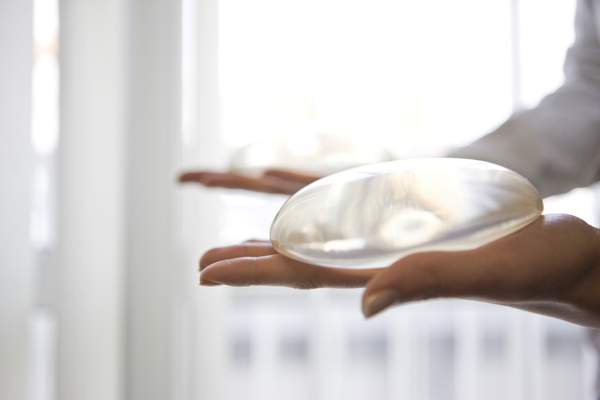How safe are silicone breast implants?
07 February 2020
By plastic surgeon Dr Dirk Kremer.
 Breast augmentation, the most popular surgical cosmetic treatment in the world among women, also conjures up one of the most common questions a plastic surgeon is asked - “So, just how safe are silicone breast implants?”.
Breast augmentation, the most popular surgical cosmetic treatment in the world among women, also conjures up one of the most common questions a plastic surgeon is asked - “So, just how safe are silicone breast implants?”.
If you’re considering breast augmentation surgery, then you’d be right to question every aspect of the procedure to help you fully understand the ins and outs, and that most certainly includes all safety aspects. Silicone is a very popular choice for many women who undergo the procedure as they believe it best naturally mimics the look and feel of real breast tissue. However, as with many procedures, stories related to concerns and risks of breast implants sometimes surface which can make anyone thinking about opting for the procedure feel anxious about going ahead with it.
For this reason, I’ve outlined some useful information below to help put the record straight so that you can put your mind at ease if breast augmentation is something you’re considering.
Breast implants are FDA Approved
If the safety of breast implants is a concern for you, it’s worth knowing that the U.S. Food and Drug Administration (FDA) approved implants for use as a medical device following many challenging clinical trials.
Silicone implants and saline implants have each received approval as safe-to-use implant materials. The most notable difference between these two implant materials is what happens in the unlikely event of one or both breast implants rupturing.
Can breast implants rupture?
Implants were designed with the intention of being long-lasting and for most patients there are absolutely no problems. However, their permanence is not an absolute guarantee so if you do choose to get silicone implants, be aware that there is a very small but possible risk of an abnormality that is known as a “silent rupture”. This is when the silicone within the implant leaks out into the surrounding tissue without showing any obvious signs or symptoms.
The FDA suggests that women with silicone implants should monitor themselves by getting regular MRI screenings as this will detect any silent ruptures. It’s recommended that a breast augmentation patient should undergo their first MRI screening three years after their original surgery and then continue to do so once every two years subsequently. It’s a rare occurrence, but should your scan pick up on a silent rupture, you should immediately seek assistance from a board-certified plastic surgeon and revise your original breast implant surgery.
Does the FDA warn of any other breast implant risks?
FDA research reveals that other than a rupture, the most common breast implant complications include:
- Swelling and soreness in your breasts
- Infections
- Temporary changes in nipple sensation
- A desire to revise the breast implant surgery
- Capsular contracture - which results in a thick and often painful ridge of scar tissue forming around the implant
The FDA also issued a statement that they identified a tenuous association (weak or insubstantial) between breast implants and the development of a cancer known as anaplastic large cell lymphoma within the capsule or fluid that surrounds the breast implant. Current FDA studies do not suggest any challenges with breast feeding following breast augmentation surgery, nor do they link any issues with the reproductive system or connective tissue diseases.
Are there ways to reduce any risks of breast augmentation surgery?
To get the best out of any form of cosmetic surgery it’s important to do your research beforehand. First and foremost, ensure you choose an experienced, reputable and board-certified plastic surgeon to carry out your breast enhancement procedure. This is the single best way to achieve excellent results, along with the highest standards of safety, quality and comfort.
To learn more about the breast surgeries I perform here at Harley St Aesthetics, including breast lift, breast reduction and my signature split muscle breast augmentation procedure, don’t hesitate to get in touch. You can book your initial consultation by calling 0845 519 7232, e-mailing info@harleystreetaesthetics.com or by completing the online contact form.
Book a Consultation
Dr Kremer conducts virtual consultations via WhatsApp or Zoom and in-person consultations at our office in Harley Street, London. If you would like to book a consultation, or would like more information, simply get in touch with us via phone, email or through our contact form and we will schedule a date and time for your consultation.



